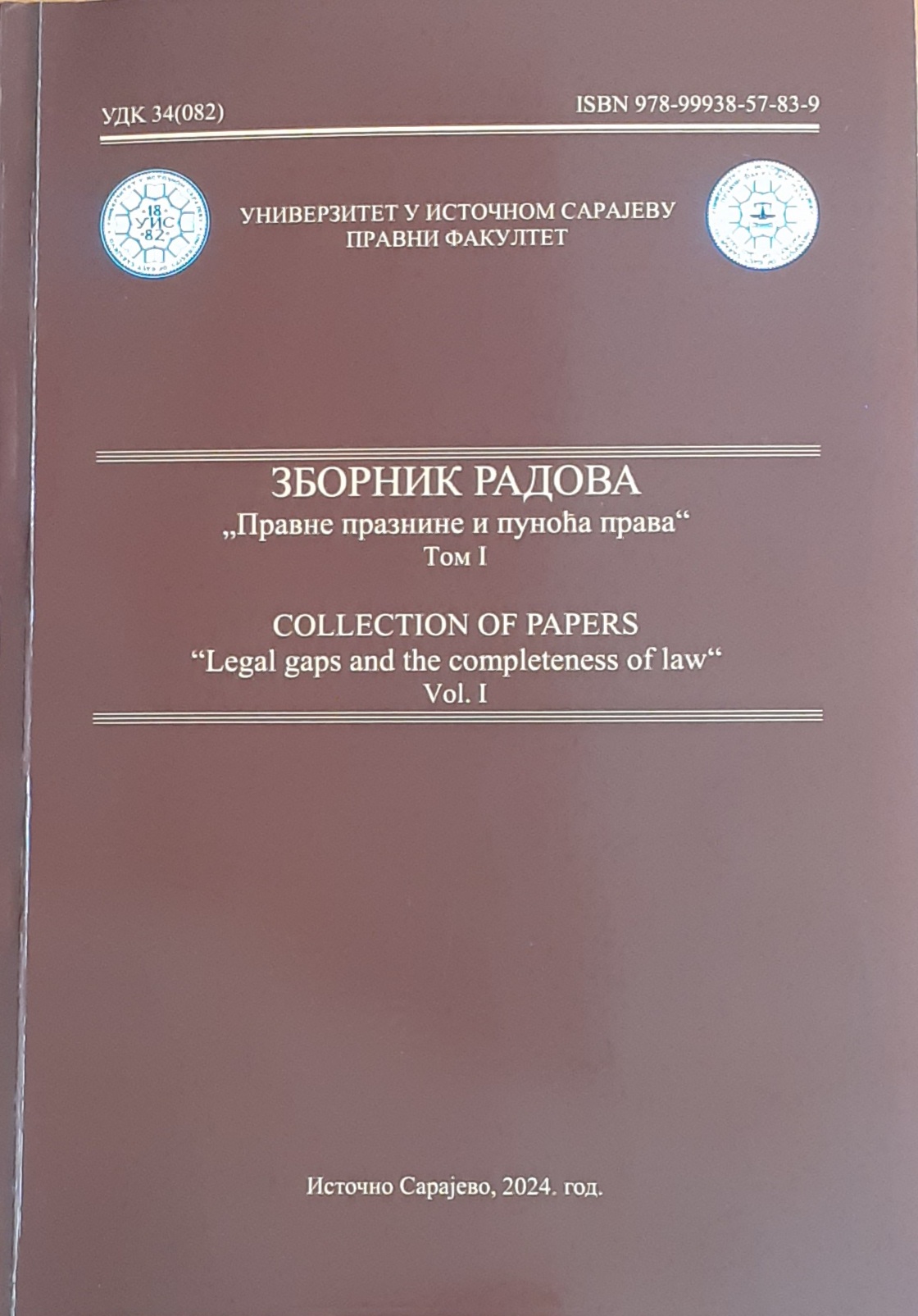Pravo, pravni sistem i pravna praznina
Law, Legal System and Legal Gap
Author(s): Mirjana Nadaždin Defterdarević
Subject(s): Law, Constitution, Jurisprudence
Published by: Правни факултет Универзитета у Источном Сарајеву
Keywords: Law; Legal norm; Legal system; Legal gap; Filling legal gaps; Legal values;
Summary/Abstract: Law endeavors to encompass with its norms the content of all social relations it deems appropriate in accordance with the values it advocates, and, through their subsequent systematization, it realizes the notion of a completed, closed, finite, harmonized and regulated system; nevertheless, there are legal gaps that, as it turns out, cannot be avoided, so this endeavor is put to a serious test. A legal system, when applied, is not a reflection of its ideal image. Law can never be entirely finite because the life it governs by its norms is always more complex, and it evolves and changes faster that law. The content of law will therefore, to a lesser or greater extent, inevitably face legal gaps - social relations with elements of legality that are not legally normed. This distinction between the coveted ideal in which it would be realized as a finite, closed, and completed legal system and its real and inevitable manifestation of imperfection demanded that law be determined according to the legal gaps. In the long history of law, the response to legal gaps has changed - from a priori rejection to pragmatic acceptance. Instead of denying or perceiving legal gaps as compromising contradictions to the legal system, as was initially the case, we now accept their existence as a challenge to both the law and the legal system, recognizing their existence as a valuable opportunity to repeatedly affirm the adaptability and vitality of both the law and the legal system in addressing the legal gap challenge. Following this choice, the law responds to the legal gap by adhering to its already established values, whose application and confirmation form the foundation of the existing legal system. The subsequently adopted norm, which fills the gap and adheres to the previously established value criteria, replaces the uncertainty resulting from the missing legal norm. Legal values, irrespective of how subjective and conditioned by interests in the context of an objective social reality, create a sense of certainty, continuity within discontinuity, and always have a clear goal - the one to justify law and strengthen trust in legal content and goals - reiterating that law guarantees peace, freedom, justice and legal certainty and that its norms will always nurture these values and honor the requirements of legality, completeness, and concreteness. Even though the value principles are subjective facts in their essence, in law they are objectivized and certain, so in the context of the legal response to the challenge of legal gaps, they should be recognized as clear and reliable guidelines. Following the pre-existent guidelines of legal values in a legal system, regardless of the numerous and sometimes significant differences in the definition and contextual application of this concept, the answer of law to a legal gap is transformed from the recognition of its deficiency to the affirmation of its virtues - primarily consistency and vitality.
Book: Зборник радова "Правне празнине и пуноћа права" Том I
- Page Range: 459-479
- Page Count: 21
- Publication Year: 2024
- Language: Serbian
- Content File-PDF

